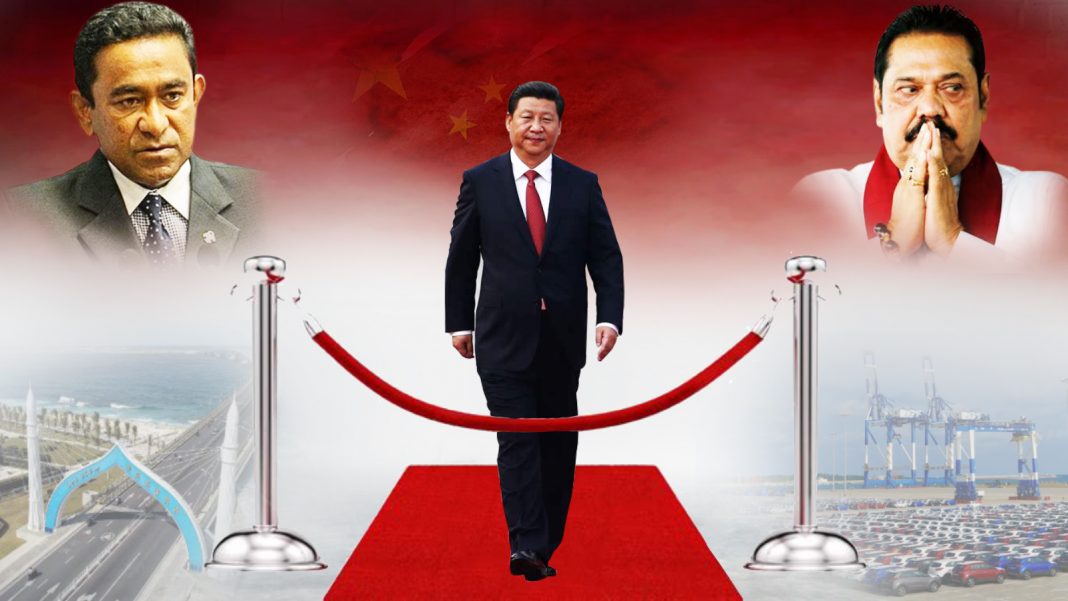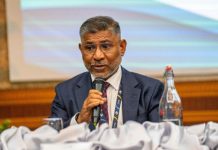In the past four months, Sri Lanka has left no stones unturned trying to combat the ongoing economic crisis that still prevails in the nation. Most of which, the credit duly goes to the Rajapaksa political dynasty that has stayed to overrule Lanka for more than half a century.
July 9th 2022, a revolutionary moment for Sri Lanka, the people forced ex President Gotabaya Rajapaksa with no option but to flee the nation and resign. For a country that has treated the Rajapaksas as kings, especially Mahinda Rajapaksa, who is no less than a deity for most of the Sri Lankans, how did he lose fame? so much that he had to resign from the post as PM?
Mahinda Rajapaksa on how he acquired the throne to peoples’ heart:
The influence of Mahinda Rajapaksa on Sri Lanka deepened when a 26-year-long civil war with ethnic Tamil separatis came to an end. Mr. Rajapaksa had to rely on some other party for help to get this war ended, and in this case it was ‘China.’ Sri Lanka started depending heavily towards China for economic support, military equipment and also took loans in bulk for various development projects.
Infact, when word got out to the United Nations about the use of heavy weapons and the atrocities by the Sri Lankan Military against the Tamil Tigers, it was China who blocked statements of warning against attacks on civilians in Sri Lanka. Mahinda Rajapaksa stayed in office from 2005 till 2015.
A New York Times report published in 2018 alleged that China Harbour, the company that had built the Hambantota port, were involved in financing the brothers campaign during the country’s 2015 parliamentary election— from funding cash to clothes for supporters.
China’s President Xi makes a calculated visit to Sri Lanka & Maldives:
In September of 2014, President Xi made an official visit to both Sri Lanka and Maldives. Sri Lanka already had an amicable relationship with China as they shared some history together but for Maldives, that was headed by the newly elected President Yameen, things were gradually shifting gears.
Yameen had a very optimistic outlook for Belt & Road Initiative introduced by Xi, because the loans provided by the Chinese were easy money for unfeasible projects with the aim of gaining control over assets. Male-Hulhumale bridge conceived in 2007, was constructed by China Harbour Engineering Company at a cost of $210 million. Similarly, Beijing Urban Construction Group completed the stalled Male international airport expansion project at Hulhumale in 2018.
The overall debt accumulated through loans taken from China amounts to USD 1.5 billion. This includes USD 600 million in loans taken directly by the then government, while the remaining are loans taken by companies that the government issued sovereign guarantees for. A report in the Strait Times says that the Maldives owes over $1 billion debt to Beijing while its total debt stands at $5.6 billion, according to the World Bank.
How is Maldives and Sri Lanka strategically viable for Beijing?
President Xi Jinping visit to Maldives on May 15, 2014, on his way to Sri Lanka and India, underlined the island nation’s importance in Xi’s strategic outreach under BRI. The scale of China’s generosity is not uniform across the world. China has been using its money strategically, especially in geopolitically significant parts of the world.
Hambantota Port: Among the projects, the Sri Lankan government spent nearly $1.5bn on building a port in Hambantota. But within a few years the port proved to be economically unviable and Colombo defaulted on its loan commitment. Chinese state-run enterprise acquired a 99 year lease of the port in 2017. For China, the port is a valuable strategic asset overlooking one of the busiest shipping lanes in the Indian Ocean. Maldives, the archipelago is also strategically located. Tens of thousands of oil tankers and ships criss-cross the route.
One may access that these actions are purely commercial but when Sri Lankan officials discussed terms of the port with Chinese counterparts, Chinese officials were frank that they saw strategic value in the possession of the port.
Infiltration of a weakened democracy:
Beijing infuses billions of money not into a country, but into corrupt politicians of that country. This is not uncommon in Chinese diplomacy. During both the 2015 and 2018 elections in Sri Lanka, China invested for the Rajapaksas campaign.
China’s peak activity is at countries that has-
-
Weak institutions
-
Fragile civil societies
-
Countries where political dispute exists at large.
Likewise in Maldives, Yameen’s inclination towards China came with huge development projects and establishment of media workfare that functioned as Yameen’s PR right before the 2018 election happened. Even to this day, these websites and channels are being funded to project Yameen in the better light for the upcoming 2023 elections. These forces are very active in social media platforms too where there accelerate Yameen’s ‘Political ’ agenda.
Sri Lanka’s reality could be Maldives’ soon:
China’s initiative to build ports and other infrastructure in Sri Lanka did not boost trade. Instead the multi-billion dollar debt has contributed largely to why Sri Lanka’s economy has crippled and is defaulting. Foreign currency ran out in April, leading to food shortages, power cuts, and protests that forced a President, Prime Minister and the entire cabinet to resign.
China could have assisted in the debt recovery for Sri Lanka by giving some concessions but instead offered to lend more. This would have allowed the government to make payments but the total owed would rise, which again would not be helping Sri Lanka in the longer course of time. The irony that China did not hesitate one bit to invest the Rajapaksa brothers when they were waging war crimes by doing a genocide, but backs off and gives clauses when Sri Lanka is in the most dire strait need of these reliefs.
It’s too late for Sri Lanka to make a turn from all the mismanagement and wrong decisions it has taken to get the country to this state. Hopefully, in the coming years, with capable leaders taking incharge, Sri Lanka will breakthrough this crisis. The case is not the same for Maldives, the island nation still has time before it falls into the same faith. The people can make a difference by not putting trust over corrupt leadership.

















